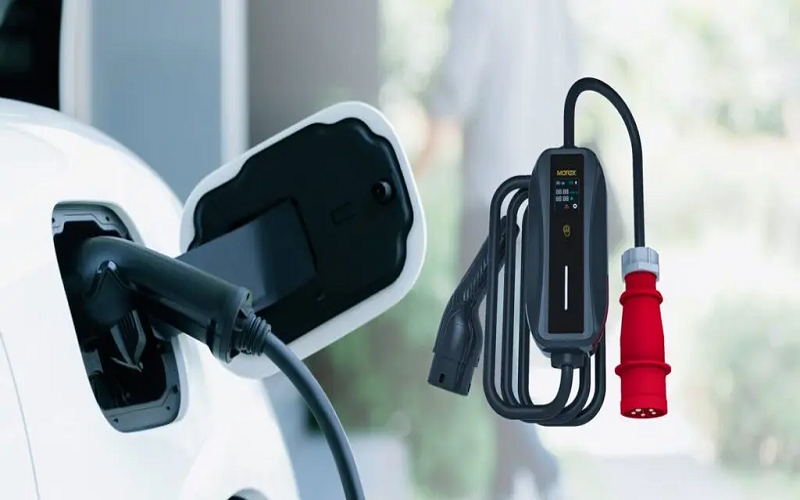The electric vehicle (EV) revolution continues to accelerate, and with every new model, the need for efficient charging solutions becomes more apparent. For EV owners, the quest to find the perfect charger can be as thrilling as test-driving a new car. With multiple charging standards available, from household sockets to high-powered fast chargers, it’s vital to pick the solution that fits your needs and your wheels. We will take a deep dive into all the factors that should influence your choice of a mobile CCS2 fast charger, ensuring that your EV charging is as turbocharged as the vehicle itself.
Understanding CCS2 – Why It Matters
The Combined Charging System (CCS) is a standardized system for electric vehicle fast charging, acclaimed for its ability to handle higher power levels and cater to various environmental conditions. The CCS2, in particular, is popular worldwide, designed for single-phase and three-phase AC, as well as DC fast charging with a charging capacity of up to 350 kW. For a growing number of electric cars, CCS2 has become a must-have feature. It’s crucial to ensure that any mobile charger you select adheres to this powerful standard to avoid issues related to charging capacity and compatibility.
Assessing Charging Speed – The Need for Speed
One of the most critical considerations when choosing a mobile CCS2 fast charger is the speed at which it can charge your vehicle. The charger’s kilowatt (kW) output directly affects charging times. For instance, a 50 kW charger might add around 150 miles of range to your battery in an hour, while a 100 kW charger can double that input. It’s essential to select a charger that can meet your daily driving requirements. High kW chargers can handle faster recharges but often come with a heftier price tag and can require additional installation if you do not have a compatible home outlet. Consider your driving habits, and select a charger with an output that balances speed and cost effectively.
Portability and Flexibility – Mobility on the Go
The term “mobile” in mobile CCS2 fast charger implies a level of portability and adaptability to various charging situations. This trait is invaluable, especially for EV owners who often find themselves traveling long distances. A good mobile charger should be relatively compact, lightweight, and easy to store in your vehicle. It should also support a variety of input sources, including standard domestic outlets, public charging stations, and even renewable energy sources.
User Interface and Connectivity – User Experience Matters
The user interface of a charger is the window to a friendly charging experience. Look for a mobile CCS2 charger with a clear display and intuitive controls. Touch screens, app integration for remote monitoring, and updates on the charging status can significantly enhance the user experience. A well-designed interface simplifies your interaction with the charger, saving you time and potentially reducing the likelihood of user errors.
Environmental and Safety Features – Charging with Peace of Mind
Safety should be a top priority when dealing with high-voltage electrical equipment. Mobile CCS2 chargers should come with standard safety features such as over-current and over-voltage protection, temperature monitoring, and automatic shutdown mechanisms in the event of a fault. In addition to these essential safety measures, consider chargers that are built using environmentally friendly components. Manufacturers that prioritize sustainability often provide products that align with a cleaner, more responsible charging ethos.
Compatibility with Your EV – A Perfect Match
Compatibility issues can be a thorn in the side of any EV owner. Before you make a purchase, double-check the compatibility of your chosen mobile CCS2 fast charger with your specific electric vehicle model. As manufacturers continue to innovate, subtle changes in charging protocols can mean the difference between a quick top-up and a frustrating incompatibility issue.
Cost and Value – Balancing the Budget
A fast charger that can quickly power your EV will likely incur a higher cost. The key is to assess this cost in terms of the value it brings. Consider not just the initial purchase price but also the long-term benefits. Some chargers may come with extended warranties or additional features, such as inclusive maintenance and support services. Weigh these against the upfront cost to make the best decision for your budget.
The Future-Proof Element – Anticipating Advances
The electric vehicle industry is rapidly evolving, with advancements in battery technology and charging infrastructure occurring at a breakneck pace. A charger that is “future-proof” to some extent – meaning it can accommodate higher power levels or connect to new smart grid systems – will ensure that your purchase remains viable as the charging landscape changes. It’s worth considering how adaptable your charger will be as new technologies emerge.
Real-World Reviews and Recommendations – Learning from Others
Finally, don’t underestimate the value of real-world feedback from fellow EV enthusiasts. Online reviews and recommendations can provide a wealth of insight into the performance, reliability, and overall satisfaction with a particular mobile CCS2 fast charger. Look for trusted sources and seek out those who can offer a balanced perspective on the product.
In conclusion, selecting the right mobile CCS2 fast charger for your electric vehicle is a decision that should balance various factors, from charging speed and portability to cost and future-proofing. Understanding your EV’s needs, your daily usage, and the available options in the market will lead you to the most appropriate choice. A thoughtful approach to the selection process will not only enhance your EV charging routine but also contribute to the seamless integration of electric mobility in your lifestyle.

